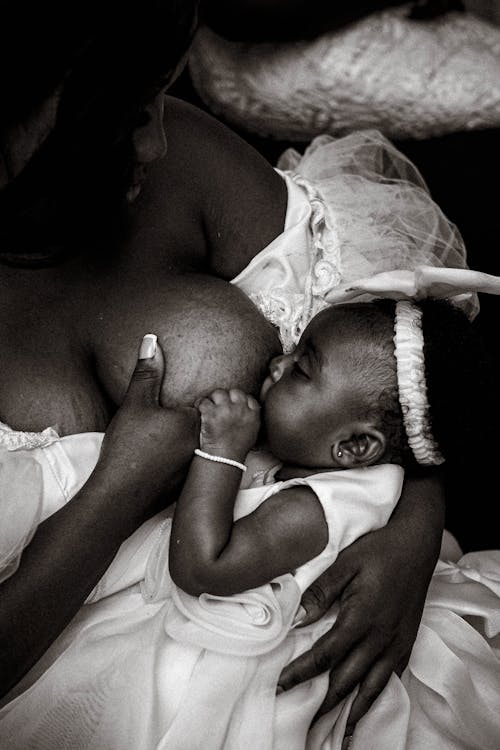Bringing home your precious newborn is a moment filled with joy, excitement, and a sprinkle of anxiety. As a new parent, you suddenly find yourself thrust into a world where every sneeze, hiccup, and cry can send your heart racing. You want to be the best parent possible, ensuring your baby is healthy and happy, but how do you know when something is a minor hiccup or a sign to call the doctor? Fear not, dear parent, for you are not alone on this rollercoaster ride called parenthood.
The truth is, newborns are tiny mysteries wrapped in adorable blankets. Their health can seem like a never-ending puzzle of what’s normal and what’s not. Is that rash something to be concerned about? Are those weird poops okay? And what on earth is going on with their belly button? Before you know it, you’re consulting Dr. Google more than you’re consulting your partner.
From sleepless nights to deciphering the mystery of baby cries, each day brings new challenges and learning experiences. I remember those early days like they were yesterday. My partner and I, armed with baby books and Google, navigated our way through the maze of newborn health. We made countless calls to our pediatrician, each time learning a little more about what was normal and what needed medical attention.
This article will cover everything from feeding issues to skin rashes, helping you understand when to breathe easy and when to pick up the phone and call your baby’s doctor. Let’s get started on this journey of discovery and reassurance!
Feeding Problems

Difficulty Latching or Sucking
One of the first challenges many new parents face is ensuring their baby is feeding well. It’s common for newborns to have difficulty latching onto the breast or bottle, which can lead to frustration for both baby and parent. I remember the first few days with my little one, every feeding session felt like a battle. It turned out, she had a slight tongue tie, which made latching difficult.
If your baby is struggling to latch or seems to get tired quickly during feedings, it’s worth reaching out to a lactation consultant or your pediatrician. They can offer guidance and support, helping you find a comfortable feeding position and ensuring your baby is getting enough to eat. Don’t hesitate to seek help; feeding should be a bonding experience, not a stressful one.
In some cases, a baby may not be getting enough milk due to a medical issue. If you notice your baby isn’t gaining weight, has fewer wet diapers, or seems excessively sleepy, it’s time to call your doctor. They can check for underlying conditions and ensure your baby is thriving.
Spit-Up and Reflux
Spit-up is a common sight in the world of newborns. Babies often spit up small amounts of milk after feeding, which is usually no cause for concern. However, if your baby is spitting up large amounts frequently or seems uncomfortable, it might be a sign of reflux. My firstborn had reflux, and I remember the worry every time he arched his back and cried after a feed.
Reflux occurs when the contents of the stomach flow back into the esophagus, causing discomfort. Keeping your baby upright for about 20-30 minutes after feeding and offering smaller, more frequent feeds can help. However, if your baby is not gaining weight, seems in pain, or has projectile vomiting, it’s important to consult your pediatrician. They can provide strategies to manage reflux and ensure your baby is comfortable and growing well.
Food Allergies and Intolerances
Food allergies and intolerances can also affect your newborn’s feeding. Symptoms like diarrhea, blood in the stool, rashes, and excessive crying can indicate an allergy or intolerance. With my second child, we discovered a dairy allergy after noticing blood in her stool and persistent eczema.
If you suspect your baby has a food allergy, speak to your pediatrician. They can help identify the allergen and recommend dietary changes or formula options. Early detection and management are key to keeping your baby healthy and happy.
Sleep Concerns

Irregular Sleep Patterns
Newborns are notorious for their irregular sleep patterns. They often sleep in short bursts and can be awake at odd hours, leaving parents exhausted and wondering if their baby’s sleep habits are normal. I remember pacing the living room at 3 AM with my baby, wondering if I’d ever sleep again.
It’s important to know that newborns typically sleep 14-17 hours a day, but in short stretches. Establishing a bedtime routine can help signal to your baby that it’s time to sleep. Swaddling, a warm bath, and a quiet, dark room can all contribute to better sleep. Remember, every baby is different, and it may take some time to find a routine that works for you.
However, if your baby seems excessively fussy, has trouble falling asleep, or wakes up frequently in distress, it might be worth discussing with your pediatrician. They can rule out any underlying issues and provide tips for improving your baby’s sleep patterns.
Sleep Apnea and Breathing Issues
Sleep apnea, though rare, can occur in newborns. It’s characterized by pauses in breathing during sleep, which can be alarming for parents. I had a close friend whose baby was diagnosed with sleep apnea. The anxiety of watching the monitor and seeing those pauses was overwhelming.
Signs of sleep apnea include noisy breathing, gasping for air, or bluish skin color during sleep. If you notice any of these symptoms, contact your pediatrician immediately. They can conduct a sleep study to diagnose the issue and recommend appropriate treatments to ensure your baby’s safety.
Safe Sleep Practices
Ensuring safe sleep practices is crucial for preventing Sudden Infant Death Syndrome (SIDS). Always place your baby on their back to sleep, on a firm mattress with no loose bedding or toys. My partner and I were paranoid about this and double-checked the crib every night.
Using a sleep sack instead of a blanket and keeping the crib free of bumpers and pillows can reduce the risk of SIDS. If you’re unsure about safe sleep practices, your pediatrician can provide resources and guidance to create a safe sleep environment for your baby.
Skin Conditions

Baby Acne
Baby acne is a common skin condition that can appear in the first few weeks of life. It’s usually harmless and clears up on its own, but it can be concerning for new parents. When my firstborn developed baby acne, I was worried it might be an allergic reaction or something more serious.
Baby acne typically appears as small red or white bumps on the cheeks, forehead, and nose. It doesn’t require treatment and usually resolves within a few weeks. Keeping your baby’s face clean and avoiding harsh skincare products can help. If the acne seems severe or persists for longer than a couple of months, consult your pediatrician to rule out other skin conditions.
Eczema
Eczema is another common skin issue in newborns, characterized by red, itchy patches on the skin. My second child had eczema, and it was heart-wrenching to see her scratching and uncomfortable. Moisturizing her skin several times a day and using fragrance-free products helped manage her symptoms.
If your baby has eczema, it’s essential to keep their skin hydrated and avoid irritants like perfumed soaps and lotions. In severe cases, your pediatrician may recommend a topical steroid to reduce inflammation. Monitoring your baby’s skin and working with your doctor can help keep eczema under control.
Cradle Cap
Cradle cap, a type of seborrheic dermatitis, appears as thick, yellow, crusty patches on a baby’s scalp. It’s harmless and typically doesn’t bother the baby, but it can be unsightly. I remember gently brushing my baby’s scalp to loosen the flakes, feeling relieved when it finally cleared up.
To treat cradle cap, you can gently massage your baby’s scalp with baby oil or a gentle shampoo to loosen the scales. Avoid picking at the flakes, as this can irritate the skin. If cradle cap persists or seems to spread, consult your pediatrician for further advice.
Umbilical Cord
The belly button is a fascinating yet slightly terrifying part of newborn care. After the umbilical cord is cut, you’re left with a stump that looks, well, a bit like a dried-up piece of something you might find in your kitchen pantry. This stump will fall off within the first couple of weeks, but until then, it requires some gentle care. I remember being so nervous about cleaning around it, terrified I might do something wrong. But rest assured, with a bit of patience and the right care, that little stump will soon be a cute belly button.
Keep the area clean and dry. Avoid submerging your baby in a bath until the stump falls off; instead, give them sponge baths. Fold the diaper down to avoid covering the stump, which helps keep it dry and reduces irritation. It’s normal for the stump to change color from yellowish-green to brown to black as it dries and eventually falls off. You might notice a bit of dried blood or oozing, which is typically normal and nothing to worry about. The key is to avoid fiddling with it – let nature take its course.
However, certain signs warrant a call to your doctor. If the base of the stump becomes red, swollen, or produces a foul-smelling discharge, these could be signs of an infection. Fever and irritability are also red flags. If the stump hasn’t fallen off by three weeks or you notice a soft bulge around the belly button (which could be a hernia), it’s time to consult your pediatrician. Remember, while the belly button may seem like a small thing, it’s essential to keep an eye on it to ensure it heals properly.
Respiratory Issues

Colds and Congestion
Newborns are susceptible to colds and congestion, which can be worrisome for parents. Their tiny nasal passages can easily become blocked, making breathing and feeding difficult. I had to use a bulb syringe and saline drops to clear my baby’s stuffy nose during her first cold.
While colds are usually not serious, it’s essential to monitor your baby’s symptoms. If they have difficulty breathing, are not feeding well, or have a fever, it’s time to call the doctor. They can provide guidance on managing symptoms and ensure there’s no underlying infection.
RSV (Respiratory Syncytial Virus)
RSV is a common virus that can cause severe respiratory illness in young infants. It’s particularly concerning for newborns, as it can lead to bronchiolitis or pneumonia. My niece was hospitalized with RSV at just two months old, and it was a terrifying experience for our family.
Symptoms of RSV include coughing, wheezing, difficulty breathing, and a high fever. If your baby shows any of these signs, seek medical attention immediately. Early intervention is crucial in managing RSV and preventing complications.
When to Worry About Coughs
Coughs in newborns can range from mild to alarming. While a mild cough may be nothing more than a reaction to a dry throat, a persistent or severe cough can indicate an infection or other health issues.
If your baby has a persistent cough, especially if it’s accompanied by wheezing, rapid breathing, or difficulty feeding, contact your pediatrician. They can determine the cause and recommend the best course of treatment to ensure your baby’s health and comfort.
Digestive Concerns

Diarrhea and Constipation
Newborns’ digestive systems are still developing, which can lead to issues like diarrhea and constipation. I remember the anxiety of trying to figure out if my baby’s stool was normal. It took a while to realize that newborn poop can come in all colors and consistencies.
Diarrhea in newborns can be caused by a virus, food intolerance, or a change in diet. If your baby has frequent, watery stools and seems dehydrated, it’s important to call your doctor. They can help identify the cause and recommend treatments to keep your baby hydrated.
Constipation, on the other hand, is less common in exclusively breastfed babies but can occur in formula-fed infants. If your baby is straining, has hard stools, or seems uncomfortable, talk to your pediatrician. They can suggest dietary changes or gentle interventions to relieve constipation.
Colic
Colic is a term used to describe excessive crying in an otherwise healthy baby. It typically starts around three weeks of age and can last until three months. My firstborn was colicky, and those endless hours of crying were incredibly stressful.
The exact cause of colic is unknown, but it’s believed to be related to digestive discomfort or overstimulation. Holding your baby, swaddling, and using white noise can help soothe a colicky baby. If you’re struggling, don’t hesitate to reach out to your pediatrician. They can provide support and rule out any underlying conditions that might be causing the crying.
Reflux and Spit-Up
As mentioned earlier, reflux is a common digestive issue in newborns. It can cause spit-up and discomfort, but most babies outgrow it by their first birthday. If your baby is gaining weight and seems otherwise healthy, reflux is usually not a cause for concern.
However, if your baby’s reflux is severe, causing poor weight gain or respiratory issues, your pediatrician may recommend medication or other treatments. Keeping your baby upright after feedings and offering smaller, more frequent meals can also help manage reflux symptoms.
Getting through the early months of your baby’s life can be a daunting experience filled with questions and concerns. Remember, you are not alone, and it’s perfectly normal to worry about your newborn’s health. Trust your instincts, and don’t hesitate to call your pediatrician if something doesn’t feel right. They are there to support you and your baby every step of the way.
By understanding common newborn health concerns and knowing when to seek medical advice, you can confidently care for your little one and enjoy the precious moments of these early months. Lean on your support system and know that you are doing an amazing job. Your baby is lucky to have you, and together, you’ll navigate this beautiful adventure called parenthood.
Let us know what newborn health concern mades!
